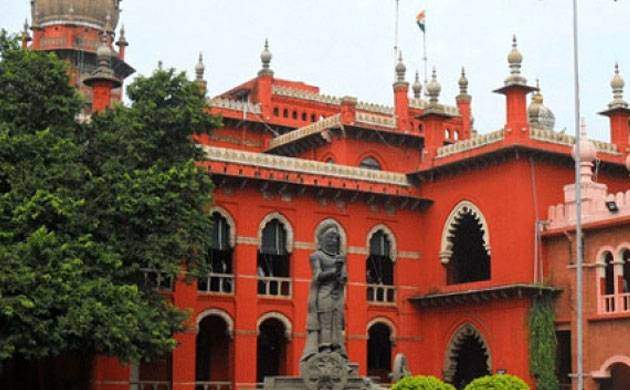The Madras High Court recently granted a two-week conjugal visit for the “purpose of procreation” to Siddique Ali, 40, an inmate of Palayamkottai Central Jail who is serving a life term.
A division bench of the high court presided by Justices S Vimala Devi and T Krishna Valli approved the conjugal visit after he filed a habeas corpus petition along with his wife. The court granted the request citing a resolution by the Centre that conjugal visits are a right and not a privilege and that laws in several countries allow such a visit.
A conjugal visit is a scheduled visit in which an inmate can spend time with their legal spouse, with the duration ranging from several hours to several days.
Conjugal Visits Important To Preserve Family Bonds
A modern-day concept, conjugal visit has been adopted by several countries such as Germany, Canada, Russia, Belgium, Spain, Spain, Saudi Arabia, Denmark with some countries like the US, Brazil and Israel even allowing same-sex conjugal visits.
The idea is being adopted slowly by countries worldwide based on the notion conjugal visits are an important factor in preserving family bonds and helps reduce tendencies in prisoners to commit break prison rules and regulations.
Psychologists, psychiatrists, prison reforms and academics acknowledge that conjugal visits enable an inmate to return to normal life after being released from prison.
Currently, India has no laws expressively allowing conjugal visits to inmates. In 2015, Punjab and Haryana High Court, however allowed conjugal visits and artificial insemination for inmates while hearing a case.
Justice Surya Kant ruled that unless reasonably classified, prison inmates were entitled to the right to procreate even while incarcerated adding that it was a fundamental right. The court stated that it would be the sole prerogative of the state to regulate a legally established procedure for the same.
Jail Manuals Do Not Allow For Conjugal Visits
In the Siddique Ali case, authorities had opposed his petition stating that the jail manuals do not leave for such requests.
The Madras HC however noted that according to Rule 20 of Tamil Nadu suspension of Sentence Rules, 1982, the seventh ground for suspension is mentioned as “any other extraordinary reason.”
It ruled that the case came under this scope as there was no law or regulation applicable to it. The court additionally stated that even without the provision, the court can use Article 21 to consider the plea of the wife-petitioner as she is not incarcerated and cannot be denied her legitimate expectation to have a child.
The petition for the leave was sought by the inmate to assist his wife in her fertility treatment and the court has said that additional leave can be considered if the treatment required so.
While passing the order, the judges stated that conjugal visits help prisoners “maintain relationship with families, reduce recidivism and motivate and an incentive to good prisoners,” adding that reforming the prisoners was a part of “the correctional mechanism” provided by the criminal justice.
Current Systems Offer Low Contact
In the Sunil Batra ruling of 1978, Justice Krishna Iyer had stated that “Imprisonment does not mean farewell to fundamental rights” as available under the Constitution.
So far several committees have been set up on prison reforms but structural change has been negligible. Even the recommendations contained in the most comprehensive prison reforms report till date, Justice Mulla-chaired All India Committee on Jail Reforms are yet to be implemented.
Current prison framework do not allow for prolonged contact between prisoners and their families. The standard protocol of mulaqat system under which families are allowed to visit inmates last justs around 20 minutes, and are held in noisy and crowded rooms.
Open-air prisons or prisons without bars are more lenient and in prisons such as Sanganer open camp selected convicts can reside with their families.
Lack of conjugal rights was seen by the Madras High Court as a reason for rising cases of HIV/AIDS in prisons, noting that “deprivation of conjugal relationship” had resulted in sexual intercourse between same genders increasing the incidence of HIV cases.
The court has suggested that a committee be setup for address the issue of conjugal visits.





